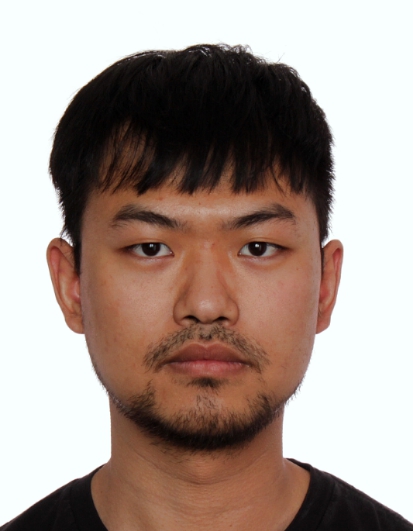
Dr Benjamin Pope is a physicist and data scientist at The University of Queensland, Brisbane. He is working to find planets around other stars using NASA space telescopes. With the help of leading-edge machine-learning algorithms, he is trying to dig up tiny signals out of the noise to expand our knowledge of the universe.
He is also the part of Australian scientists’ team that used Low Frequency Array (LOFAR) and TESS telescopes, to detect signals indicating planets beyond our solar system.
He has been extensively involved in outreach to the general public, including talks, telescope tours, and live comedy. He won the BBC University Challenge 2017 season.
I have been following his research and contacted him for an interview to which he agreed even during his hectic hours of work. So, without much ado, please find Dr. Benjamin Pope, himself answering questions on his research in astrophysics:
When did you decide to become an Astrophysicist? Was there a specific event that triggered this decision?
I think it happened gradually – I have always been interested in many things, and when I started university, I was taking Latin and philosophy as well as maths and physics. Over time I have found that astronomy is an area of research – almost uniquely, I think – which permits broad interests from the technical to the social, and reaching across many areas of science; so, as someone who is interested in a bit of everything it suits me very well.
Why do you search for exoplanets?
I want to know if there is life elsewhere in the Universe!
Why, do you think, our Solar System does not have planets that are in between the size of Earth and Neptune?
Hard question. Astronomers have found super-Earths to be very common in the universe; trying to understand why we don’t have any in our own solar system is a very active topic of planet formation theory. Perhaps we even had one, and it was ejected!

Universe is infinite, so, you think there are other intelligent life exists somewhere within it?
I certainly have a personal aesthetic inclination to thinking this is true, but I don’t think there is an awful lot of evidence either way; even putting just reasonable uncertainties into the Drake equation, the distance to the nearest intelligent life ranges over many orders of magnitude (https://arxiv.org/abs/1806.02404).
What makes a planet habitable? Considering the fact that the ancient Earth, after all, was clearly not a place we would enjoy today.
We have only a very limited understanding of the possible diversities of chemistry that could underpin life, and only a handful of examples of well-understood planetary surface environments (let alone more exotic locales). I don’t think I would be confident in saying what makes a planet habitable in any concrete terms; but a solvent like water, a source of free energy like the Sun or volcanism, and a moderate temperature and radiation environment would seem like a pretty robust set of guesses.
Why aren’t brown dwarfs considered candidates for the mysterious dark matter? Or could they be a field of lightweight black holes?
If it were up to missing mass in galaxies to explain their rotation curves, then sure; people had these ideas under the umbrella MACHOS (Massive Compact Halo Objects), that brown dwarfs or cold stellar remnants could explain dark matter. But when astronomers went to look for these objects’ effects on gravitationally microlensing background stars, there are simply not enough to explain dark matter – by many orders of magnitude.
More importantly, the trouble is that the cosmic microwave background actually tells you pretty robustly that dark matter existed in the current proportion since the dawn of the universe. Brown dwarfs form like stars – not at the dawn of time! Primordial black holes sure… to some extent a lot of that parameter space is ruled out by the MACHO microlensing searches, and also by searches for the burst of radiation they should give off as they die from Hawking evaporation. There was even a recent paper describing how you could detect these from the shapes of craters they would leave when they impact the Moon: https://arxiv.org/abs/2104.00033.
My understanding is that some models of primordial black holes aren’t completely dead but I don’t think people really believe in it as an explanation for dark matter: people tend to be more interested in particle models like WIMPs and axions and the many variations on those themes.

Before the era of exoplanet discoveries, instruments could only measure stellar motions down to a kilometer per second, too imprecise to detect a wobble due to a planet. Will the technological development allow us to look at the surface of the nearest exoplanets in the 21st century?
Yes! We have come a long way. The technology for RVs, for photometry, and for spectroscopy are all orders of magnitude better than they were years ago. There is a ‘Mamajek’s Law’ like Moore’s law for the growth in the number of known exoplanets with time – doubling every 27 months: https://twitter.com/geerthub/status/844271318300221440?lang=en.
Most exoplanet astronomers think that the main barrier to further planet discoveries is the host stars: we are now at the level of technical precision where we could almost detect an Earth around a Sun, but where the Sun’s intrinsic variability (from its convection, its magnetic activity, and its helioseismic pulsations – ie sound waves!) is much higher than this. So many of us (myself included) are looking at understanding stellar physics better so that we can subtract out stellar noise and find the planetary signals hidden beneath.
Someone comes up to you and says, “I wanna be just like you. I want to be an Astrophysicist”. What advice would you give?
Read widely and study physics at university!
What books should I read in 2021?
I think it’s imperative to understand the interconnectedness of the climate change & broader environmental crises with colonialism and capitalism. So:
- David Wallace-Wells, The Uninhabitable Earth
- Full Circle, Scott Ludlam
- Savage Dreams, Rebecca Solnit
Dr. Benjamin, it has been a real pleasure! I can’t thank you enough. Your work is truly an inspiration. We look forward to visit you again and see more of your research. Till then, we wish you all the very best for your future endeavor.



